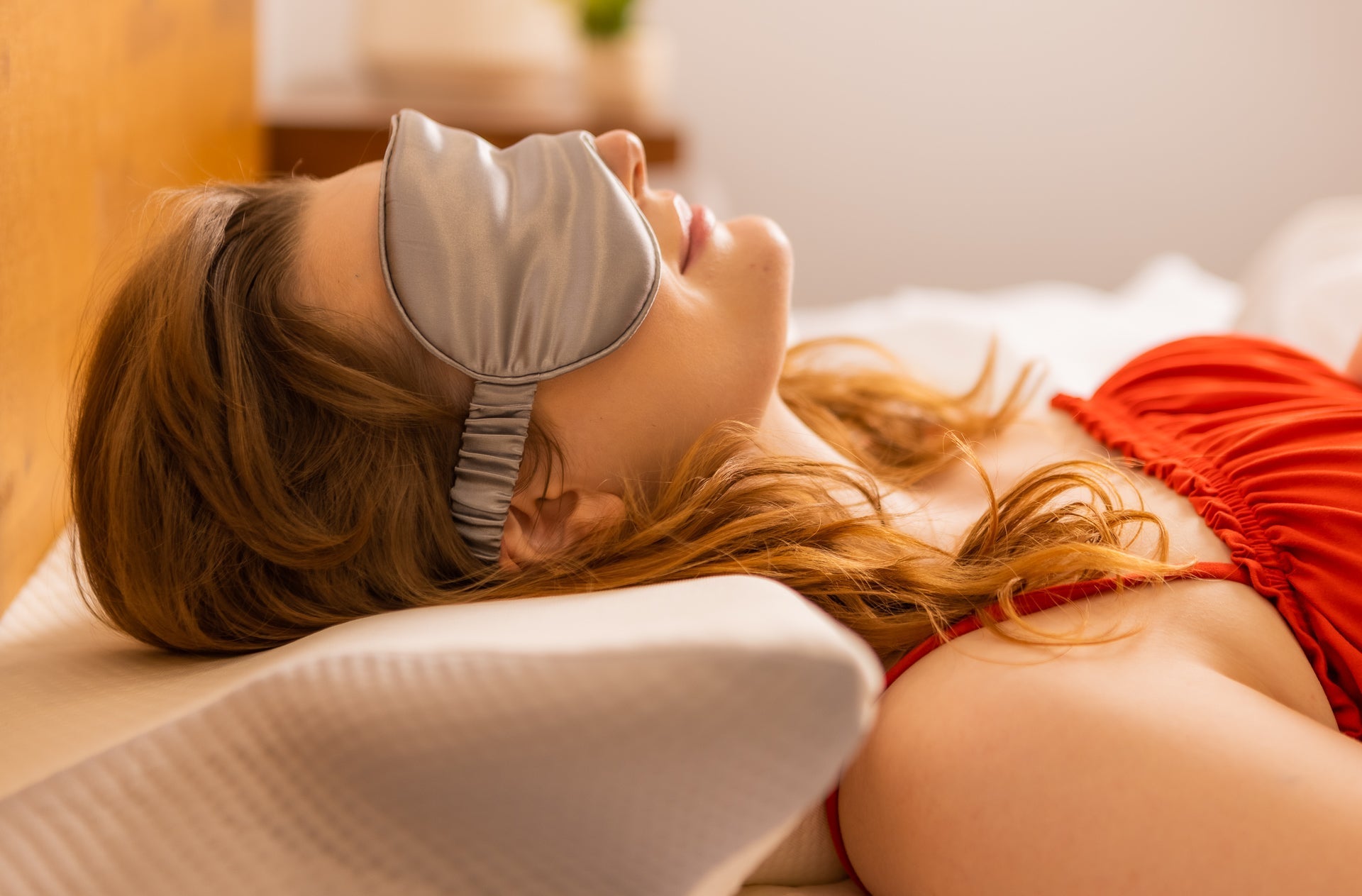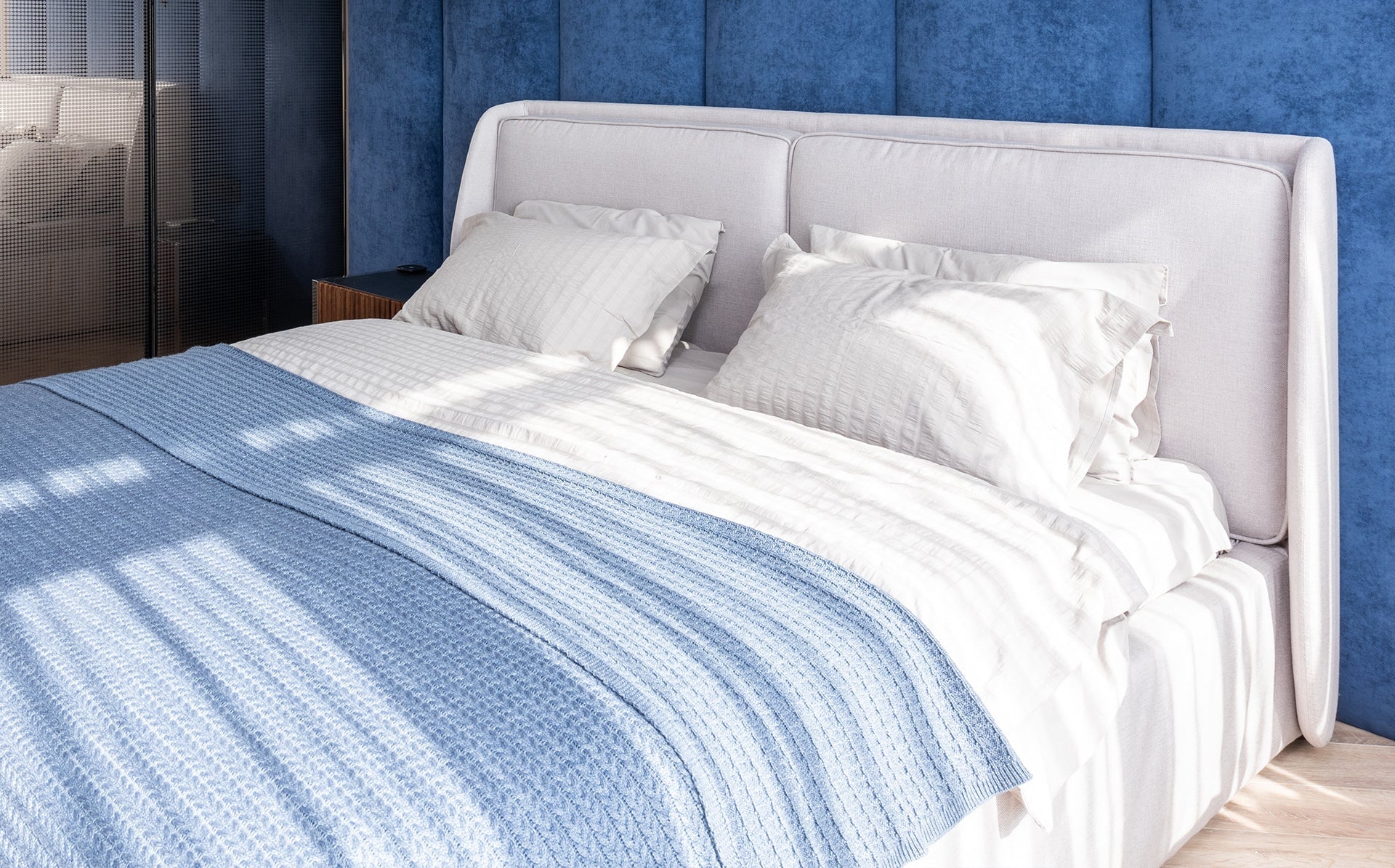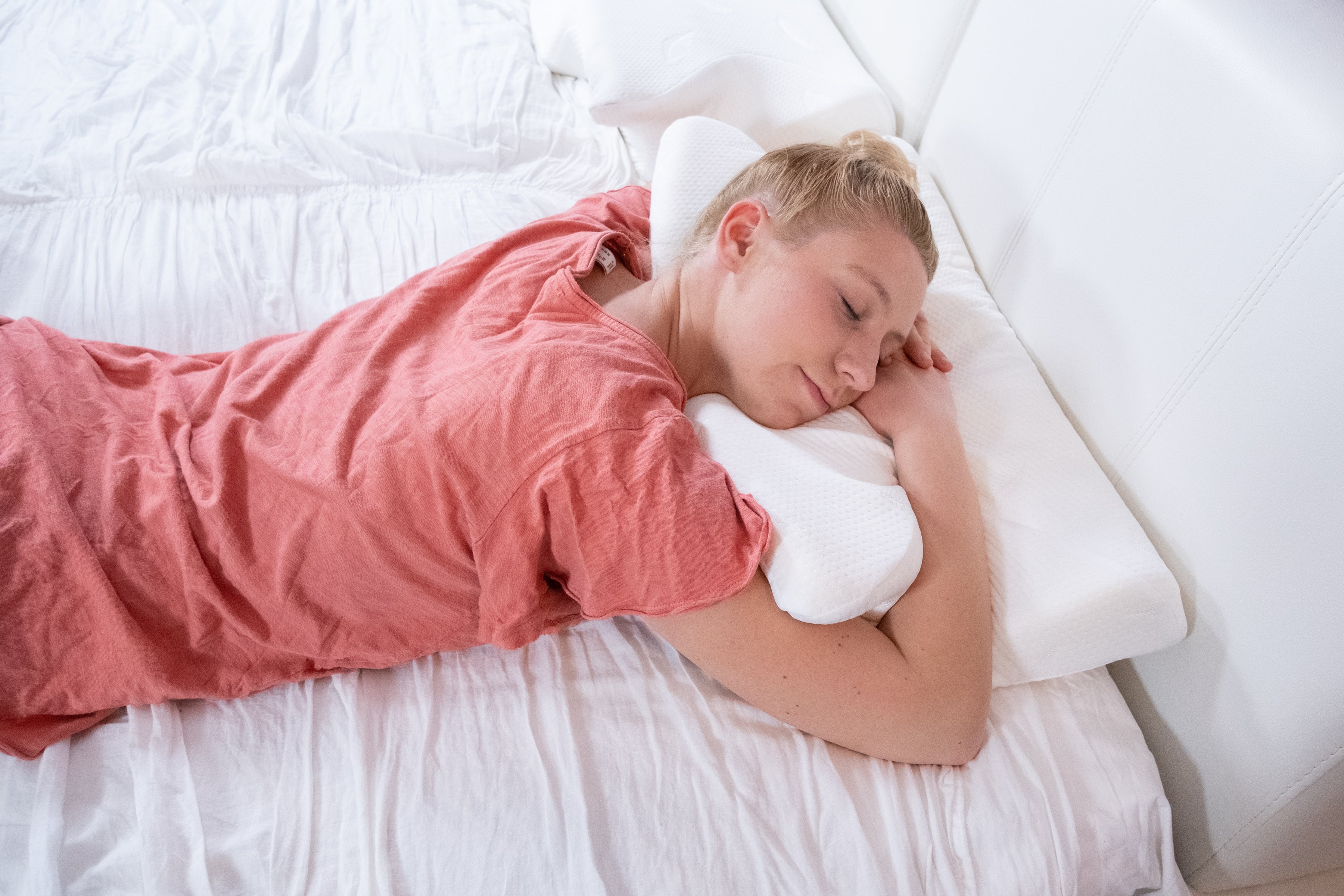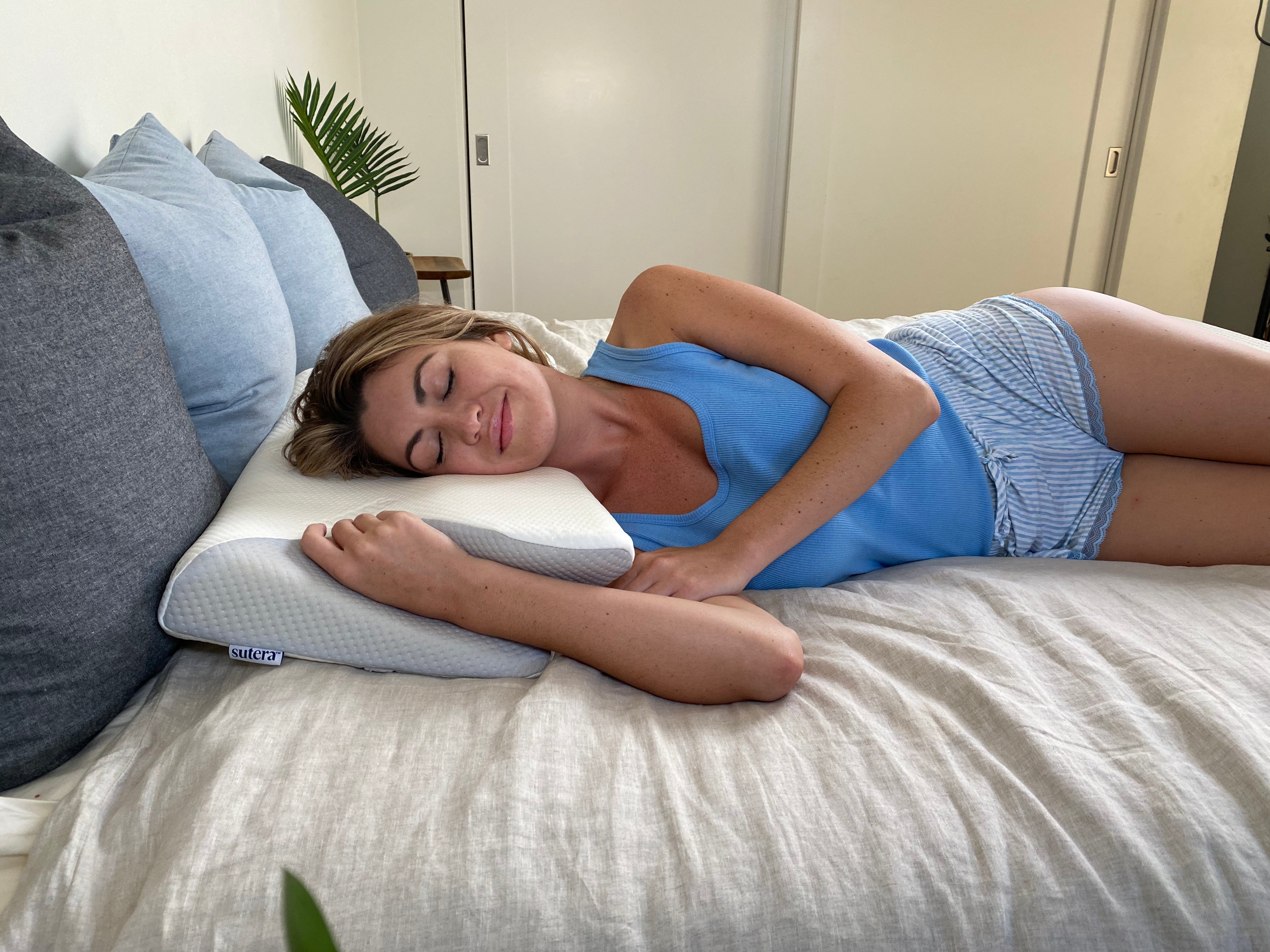Understanding Room Temperature and Deep Sleep
Your bedroom temperature might be sabotaging your sleep without you even knowing it. Research from sleep scientists reveals that room temperature is one of the most critical—yet overlooked—factors affecting deep sleep quality.
According to the National Sleep Foundation, the optimal bedroom temperature for sleep falls between 60-67°F (15-19°C). This might seem cool, but there's compelling science behind these numbers that could transform your sleep quality tonight.
The Science of Temperature Regulation During Sleep
Your body temperature naturally fluctuates throughout the day, following a predictable circadian rhythm. Understanding this pattern is key to optimizing your sleep environment.
Temperature regulation is crucial for sleep and immune health.
The Nightly Temperature Drop
As bedtime approaches, your core body temperature begins to drop, signaling to your brain that it's time to sleep. This temperature decrease triggers the release of melatonin, your body's natural sleep hormone. Research from Harvard Medical School shows that this temperature drop is essential for initiating and maintaining deep sleep.
Throughout the night, your body temperature continues to decrease, reaching its lowest point around 5 AM—typically about 2 degrees Fahrenheit lower than your daytime temperature. This natural cooling process is crucial for achieving the deep, restorative stages of sleep where physical recovery and memory consolidation occur.
How Room Temperature Affects Sleep Stages
Different sleep stages have different temperature requirements:
- Light Sleep (N1-N2): Your body begins cooling, and a cooler room helps facilitate this transition
- Deep Sleep (N3): Requires the coolest body temperature; warm rooms can prevent you from reaching or maintaining this crucial stage
- REM Sleep: Your body loses its ability to regulate temperature during REM; extreme room temperatures can cause frequent awakenings
What Happens When Your Room Is Too Hot
Sleeping in a room that's too warm causes multiple problems that compound throughout the night:
Delayed Sleep Onset
When your bedroom is too warm, your body struggles to achieve the temperature drop necessary for sleep initiation. Studies show that people in rooms above 75°F (24°C) take an average of 14 minutes longer to fall asleep compared to those in optimal conditions.
Reduced Deep Sleep
Heat is the enemy of deep sleep. Research published in the Journal of Physiological Anthropology found that sleeping in temperatures above 71°F (22°C) reduces slow-wave sleep (deep sleep) by up to 40%. This means even if you sleep for 8 hours, you might only get the restorative benefits of 5-6 hours.
Increased Night Wakings
Your body will wake you up if it gets too hot—it's a survival mechanism. These micro-awakenings, which you might not even remember, fragment your sleep architecture and leave you feeling unrefreshed despite "sleeping" all night.
Night Sweats and Discomfort
Excessive warmth triggers sweating, which can lead to dehydration and electrolyte imbalances. This creates a vicious cycle: sweating makes you uncomfortable, discomfort causes awakening, and awakening disrupts your sleep cycles.
The Surprising Effects of a Too-Cold Room
While less common, sleeping in an overly cold room presents its own challenges:
Muscle Tension
When you're cold, your muscles contract involuntarily to generate heat. This tension can lead to morning stiffness, particularly in the neck and shoulders. Products like the Sutera Dream Deep Pillow can help maintain proper alignment even when muscles tense from cold.
Disrupted REM Sleep
Extreme cold particularly affects REM sleep, the stage crucial for emotional processing and creativity. Your body diverts energy to maintaining temperature instead of facilitating these important cognitive processes.
Breathing Issues
Very cold air can irritate airways, potentially triggering asthma or increasing snoring. This is particularly problematic for people with respiratory conditions.
Finding Your Perfect Sleep Temperature
While 60-67°F is the scientific sweet spot, individual preferences vary based on several factors:
Personal Factors
- Age: Older adults often prefer slightly warmer temperatures (68-70°F)
- Gender: Women typically sleep better in temperatures 2-3 degrees warmer than men
- Body composition: People with more muscle mass generate more heat and prefer cooler rooms
- Health conditions: Thyroid issues, menopause, and certain medications affect temperature preference
The Two-Degree Rule
Start with 65°F (18°C) and adjust by no more than 2 degrees each night until you find your optimal temperature. Keep a sleep diary noting how you feel each morning to identify your perfect setting.
Practical Strategies for Temperature Control
Achieving and maintaining the ideal sleep temperature requires more than just adjusting your thermostat:
Bedding Choices
Your bedding acts as insulation, trapping heat around your body. Consider these factors:
- Breathable materials: Cotton, linen, and bamboo allow better airflow than synthetic materials
- Layer strategically: Multiple light layers allow for easy adjustment during the night
- Seasonal rotation: Use lighter bedding in summer, heavier in winter
- Moisture-wicking fabrics: Help regulate temperature by managing perspiration
Mattress Considerations
Your mattress significantly impacts sleep temperature:
- Memory foam: Tends to retain heat; look for gel-infused or open-cell options
- Innerspring: Better airflow but less contouring
- Hybrid: Balances support with temperature regulation
- Cooling toppers: Can add temperature regulation to any mattress
Pre-Sleep Temperature Hacks
Prepare your body for optimal sleep temperature:
- Warm bath 90 minutes before bed: Raises then rapidly drops body temperature
- Cool shower 30 minutes before bed: Provides immediate cooling for hot nights
- Foot temperature: Wearing socks to warm feet can actually help cool your core
- Hydration: Proper hydration helps temperature regulation
Technology and Temperature Control
Modern technology offers sophisticated solutions for temperature optimization:
Smart Thermostats
Program your thermostat to automatically cool your bedroom 30 minutes before bedtime and gradually warm before your wake time. This mimics natural temperature patterns and can improve both sleep quality and morning alertness.
Climate-Controlled Bedding
New technologies like cooling mattress pads and dual-zone temperature control allow partners with different temperature preferences to sleep comfortably together.
Sleep Tracking
Many wearables now track skin temperature during sleep, helping you identify optimal temperature ranges and detect patterns affecting your sleep quality.
Seasonal Temperature Adjustments
Your ideal sleep temperature may vary with the seasons:
Summer Strategies
- Use fans for air circulation even with AC
- Close blinds during the day to prevent heat buildup
- Consider a Dream Deep memory foam pillow or mattress pad
- Use lightweight, moisture-wicking pajamas
Winter Tactics
- Use a humidifier to prevent dry air discomfort
- Layer bedding for easy adjustment
- Warm your bed with an electric blanket, then turn it off for sleep
- Keep feet warm with breathable socks
Special Considerations
For Hot Sleepers
If you naturally run hot:
- Choose moisture-wicking sleepwear and bedding
- Consider a fan for personal airflow
- Use a cooling pillow or pad
- Keep a glass of ice water bedside
For Cold Sleepers
If you're always cold:
- Warm your bed before getting in
- Use flannel sheets in cooler months
- Consider an electric mattress pad with timer
- Keep an extra blanket within reach
For Couples with Different Preferences
Temperature incompatibility is a real relationship challenge. Solutions include:
- Dual-zone climate control bedding
- Separate blankets with shared flat sheet
- Strategic fan placement
- Compromise temperature with individual adjustments
The Health Benefits of Optimal Sleep Temperature
Maintaining the right bedroom temperature delivers benefits beyond better sleep:
Metabolic Benefits
Sleeping in a cool room (66°F) can increase brown fat activation, boosting metabolism and potentially aiding weight management. Studies show people who sleep in cooler rooms burn up to 7% more calories.
Anti-Aging Effects
Cooler sleep temperatures trigger increased melatonin production. Melatonin isn't just a sleep hormone—it's a powerful antioxidant that fights cellular aging and supports immune function.
Cognitive Performance
Proper temperature regulation during sleep enhances memory consolidation and problem-solving abilities. Students who sleep in optimal temperatures show 15% better test performance compared to those in suboptimal conditions.
Troubleshooting Temperature Issues
If You Can't Control Room Temperature
Renters and those without central air have options:
- Portable fans or space heaters (use safely)
- Window units for bedroom-specific control
- Cooling/heating mattress pads
- Strategic window management
If Partners Disagree on Temperature
Communication and compromise are key:
- Start with the cooler person's preference (easier to add layers)
- Invest in personalized solutions
- Consider separate bedding
- Test different temperatures for a week each
The Bottom Line on Temperature and Sleep
Room temperature profoundly affects your sleep quality, impacting everything from how quickly you fall asleep to how refreshed you feel in the morning. While 60-67°F provides the scientific baseline, your perfect temperature depends on personal factors and preferences.
The investment in proper temperature control—whether through thermostat adjustment, bedding choices, or sleep accessories—pays dividends in improved sleep quality, better health, and enhanced daily performance. Start with the recommended range, experiment thoughtfully, and let your body guide you to your optimal sleep temperature.
Remember, even small temperature adjustments can yield significant improvements in sleep quality. Tonight, try dropping your bedroom temperature by just 2-3 degrees and notice the difference. Your deep sleep—and your tomorrow self—will thank you.
Frequently Asked Questions
What's the best temperature for deep sleep?
The optimal temperature range for deep sleep is 60-67°F (15-19°C), with most people finding their sweet spot around 65°F (18°C). This cooler temperature facilitates the natural drop in core body temperature needed for deep, restorative sleep.
Why do I sleep hot even in a cool room?
Several factors can cause this: memory foam mattresses that retain heat, synthetic bedding materials, hormonal changes, certain medications, or naturally high metabolism. Try moisture-wicking sleepwear, breathable bedding, and consider a cooling mattress topper.
Can sleeping in a cold room make you sick?
No, cold temperatures alone don't cause illness—viruses and bacteria do. However, extremely cold air can irritate airways and make you more susceptible to respiratory infections if you're already exposed to pathogens.
Should I use a fan while sleeping?
Yes, fans can improve sleep by providing air circulation and white noise. Position the fan to create indirect airflow rather than blowing directly on you, which can cause dry eyes and congestion.
How do I keep my room cool without AC?
Use fans strategically, close blinds during the day, open windows at night when outside temperature drops, use cooling bedding materials, take a cool shower before bed, and consider a cooling mattress pad or pillow.
Related Reading:







Share:
The Hidden Connection Between Sleep and Immune System Health
Why Side Sleepers Need Different Pillow Support (Chiropractor's Guide)